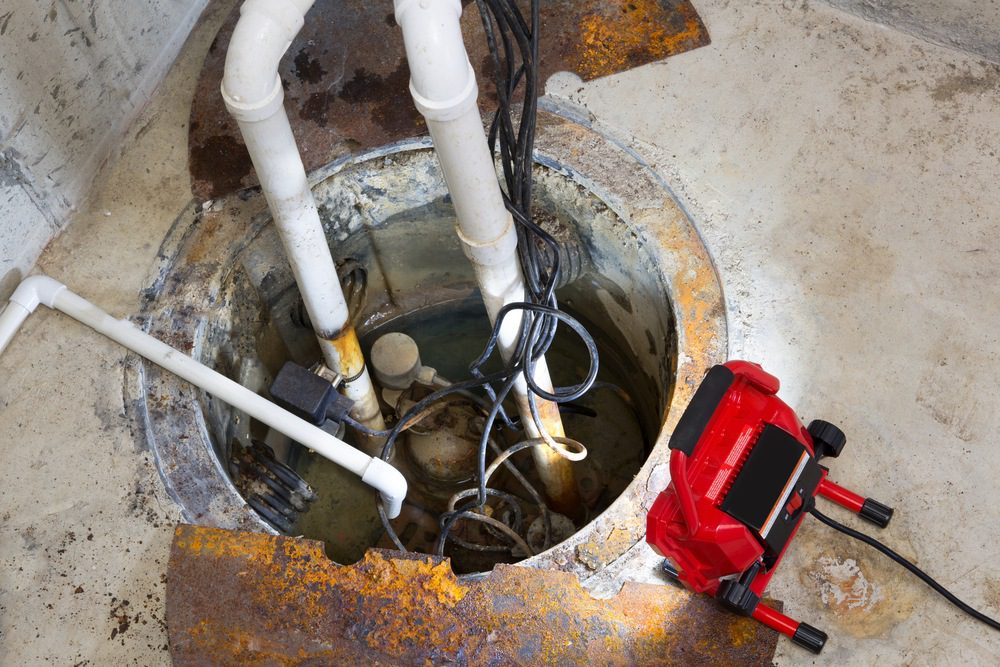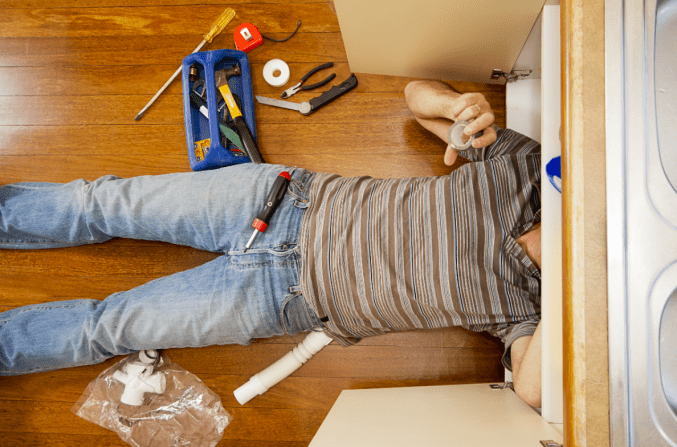
Septic Tank Maintenance
According to the Environmental Protection Agency (EPA), more than one in five U.S. households – typically in rural areas – depends on an individual onsite system or small community cluster system to treat wastewater. With the cost of replacement averaging between $3,000 to $7,000, routine septic system maintenance not only saves homeowners a lot of money but can also help maintain a healthy and safe living environment.
Septic System Basics
A septic system has two main components, a septic tank, and a drain field:
- The tank is a water-tight concrete, fiberglass, or polyethylene container buried underground and holds solids and scum accumulated from your wastewater.
- The drain field is an area of soil that removes the contaminants from the liquid as it is absorbed into the ground.
Because it is expensive to replace a septic system, proper maintenance is important. The more proactive you are in maintaining your system, the longer it will last. In fact, septic tanks can last as long as 30 years or more.
The main goals of a septic tank maintenance program are to prevent the accumulation of solids, as well as any groundwater contamination. The good news is that septic system maintenance is not complicated, relying on a few basic activities.
Septic Tank Cleaning
Solids and other debris will accumulate and eventually clog the drain pipes that connect the tank to the drain field. That’s why most professionals recommend high-pressure water jetting every five years to eliminate and clear any debris that could prevent your system from operating efficiently.
Using Your Septic System Wisely
Drainfield
After wastewater leaves your septic tank, it flows into the drain field of your septic system. If the drain field becomes inundated either from your system or from outside sources, it can flood, causing a backup.
As a result:
- Avoid planting gardens and trees too near your drain field
- Never park or drive or drive your car over it
- Direct roof drains sump pumps, and other rainwater drainage systems away from it
Water Use
In the average single-family home, water use averages about 70 gallons per person, per day. But a leaky or running toilet can waste as much as 200 gallons of water per day, according to EPA. And the less water enters your septic system, the better.
- If you live in a home with a septic system, you can improve its performance by:
- Replacing existing toilets with high-efficiency models
- Using faucet aerators, high-efficiency showerheads, and shower flow restrictors
- Fixing leaking faucets and running toilets
- Keeping rainwater drainage systems away from your drain field
Washing machines are another major area of concern. Selecting the proper load size in your washing machine. If you can’t select load size, run only full loads. And spread laundry tasks throughout the week. Clothes washers with the ENERGY STAR label use 35 percent less energy and 50 percent less water than standard models.
And, with hot tubs, you’ll want to make sure the water has cooled before draining it. And, if possible, drain the water onto other areas of your property, away from your septic tank drain field.
Proper Disposal
There’s no escaping a basic fact: everything that goes down your drains – whether you flush, pour, or grind (as in your garbage disposal) it – ends up in your septic system. And that affects the health of your septic system.
Toilets are a special temptation for all too many of us. According to EPA, the only things that you should flush down the toilet are human waste and toilet paper. That means no cooking grease, flushable wipes, paper towels, feminine hygiene products, dental floss, diapers, cigarette butts, pharmaceuticals, coffee grounds, paper towels, or cat litter, to name just a few popular items. And especially no household chemicals like gasoline, oil, pesticides, antifreeze, paint, or paint thinners
Also, avoid chemical drain openers for a clogged drain. If a plunger or a drain snake, doesn’t work, call and ask for our drain cleaning service. Even garbage disposals are a problem. Most professionals recommend that houses with septic tanks should limit their use or avoid them entirely.
Septic System Maintenance
Perform Regular Maintenance
To keep your septic system running efficiently, we recommend having a service professional inspect your septic system every year. According to the EPA, household septic systems should be pumped every three to five years.
When you call a septic service provider, he or she will inspect for leaks and examine the scum and sludge layers in your septic tank. Keep those maintenance records including detailed reports on potential or existing leaks, as well as scum levels and possible damage. They will come in handy in creating a regular maintenance schedule.
It’s also important to have the service provider clean or replace your filter whenever you service your system. The filter prevents solids from entering your drain field.
The service provider should note repairs completed and the tank condition in your system’s service report. If other repairs are recommended, hire a repair person soon.
Although Casteel does normal household plumbing problems, it does not service septic tanks. We do, however, handle repairs of sump pumps, which are sometimes confused with septic systems.
To find service professionals in your area, contact the National Onsite Wastewater Recycling Association (NOWRA).
Septic Tank Treatment
You should use live, organic bacteria to break down unnatural substances and solids, like detergents and soaps, that can enter your septic system. These common household substances may kill off naturally occurring bacteria that help your system to function properly. Bacteria additives help keep your pipes clean and clear and allow your system to function properly, without odors.
Septic Pumping
Pumping a septic system when needed will prevent it from breaking down.
How Often Should A Septic Tank Be Pumped?
For most households, that means septic tanks are typically pumped every three to five years. The main factors determining the frequency of pumping include the size of the household, total wastewater generated, amount of solids present, and tank size.
According to EPA, your tank should be pumped if the top of the scum layer is within 12 inches of the T-shaped outlet preventing sludge and scum from leaving the tank. Systems that have electrical float switches, pumps, or mechanical components need to be inspected more often, usually once a year.
To keep track of when to pump out your tank, write down the sludge and scum levels found by the septic professional. Then get on a regular schedule to prevent solids from accumulating.

Sewer Line Repair and Replacement Services
If your septic system is emitting foul odors, it may mean your system is clogged with solids and is more likely to fail. Sewage can back up into your home if you fail to properly maintain your septic equipment and facilities. If this does happen, avoid contact with the sewage, which could contain harmful pathogens and bad bacteria.
If you are encountering sewer issues in your house, give our team of licensed plumbers a call at (770) 852-8504 to book an appointment. Our staff of local plumbers in Athens, GA and other area offer comprehensive sewer line replacement and sewer line repair services for homes in your neighborhood. In addition, you can find an experienced technician for speciality projects by searching the National Onsite Wastewater Recycling Association’s database of service professionals






